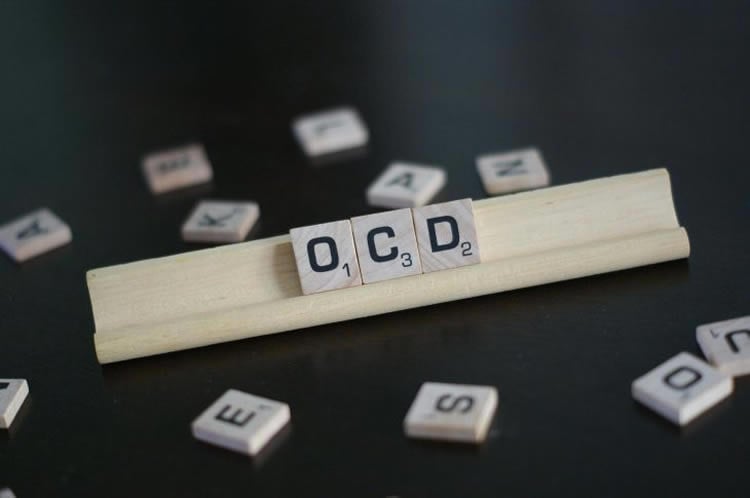Summary: Researchers report the fear of guilt can evoke doubt when making decisions. The findings could help develop new treatments for those suffering from OCD.
Source: University of Waterloo.
Advances in our understanding of the development and persistence of Obsessive-Compulsive Disorder (OCD) have the potential to improve treatment according to a new study by the University of Waterloo.
The study found that fear of guilt evokes feelings of doubt in decision-making, with greater fear of guilt being associated with greater self-reported difficulty making decisions, less satisfaction with the decisions made, and less confidence in those decisions. A person’s fear of being guilty for something that they have done or haven’t done also results in them wanting more information before making a decision.
“People with OCD have generally been shown in research to have this inflated feeling of responsibility,” said Waterloo graduate student and lead researcher on the study, Brenda Chiang. “They often feel that they are going to be responsible for something bad that will happen or that if they fail to do something, they will be responsible for that harm too. So, they naturally have slightly higher levels of fear of guilt making them more susceptible to indecisiveness.
“This indecisiveness leads to difficulty terminating an action as well as evokes doubt as to whether an action was done properly, which leads to repetition of that action.”

The study assessed 63 undergraduate students from the University of Waterloo, who were previously identified as having a wide range of trait levels of fear of guilt; from low to high.
“The next step would be to examine this in people who have OCD,” said Professor Christine Purdon, co-author of the study. “The current gold standard for treating OCD is Cognitive Behavioral Therapy, which has about a 50 to 60 per cent success rate if you include people who drop out because they can’t tolerate it or people who decline the treatment because they anticipate that they can’t do it.
“We’re only getting about half of the people with OCD treated properly, so once we have a better understanding of factors that cause repetition and doubt, we can develop treatment that addresses a greater number of persons.”
Source: Ryon Jones – University of Waterloo
Publisher: Organized by NeuroscienceNews.com.
Image Source: NeuroscienceNews.com image is in the public domain.
Original Research: Open access research for “Have I done enough to avoid blame? Fear of guilt evokes OCD-like indecisiveness” by Brenda Chiang, Christine Purdon in Journal of Obsessive-Compulsive and Related Disorders. Published May 2018.
doi:10.1016/j.jocrd.2018.02.001
[cbtabs][cbtab title=”MLA”]University of Waterloo “Understanding Fear of Guilt Key in Better Treating OCD.” NeuroscienceNews. NeuroscienceNews, 3 May 2018.
<https://neurosciencenews.com/ocd-guilt-8957/>.[/cbtab][cbtab title=”APA”]University of Waterloo (2018, May 3). Understanding Fear of Guilt Key in Better Treating OCD. NeuroscienceNews. Retrieved May 3, 2018 from https://neurosciencenews.com/ocd-guilt-8957/[/cbtab][cbtab title=”Chicago”]University of Waterloo “Understanding Fear of Guilt Key in Better Treating OCD.” https://neurosciencenews.com/ocd-guilt-8957/ (accessed May 3, 2018).[/cbtab][/cbtabs]
Abstract
Have I done enough to avoid blame? Fear of guilt evokes OCD-like indecisiveness
People with obsessive-compulsive disorder (OCD) are often indecisive, yet the factors driving that indecisiveness are not well-understood. Meanwhile, research suggests that fear of guilt is characteristic of OCD and that it may influence decision-making, but few studies have examined that relationship directly. This study therefore explored whether fear of guilt predicts decision-making parameters, such as the amount and type of information required to make decisions, decision latency, and the subjective experience of making decisions. Sixty-three undergraduate students were given 12 hypothetical scenarios in which a decision had to be made to ensure safety and avoid harm. There were no limits on deliberation time, and participants could request up to four pieces of information before making decisions. Fear of guilt was associated with the need for more information before making a decision, but not more time to make a decision, and predicted greater difficulty making decisions, lower confidence that the right decisions were made, and less satisfaction with decisions. It was also associated with a preference for opinion-based information rather than fact, but for global opinion instead of a single authority. Fear of guilt may thus be a factor in the indecisiveness and perseveration observed in OCD and warrants further exploration.






